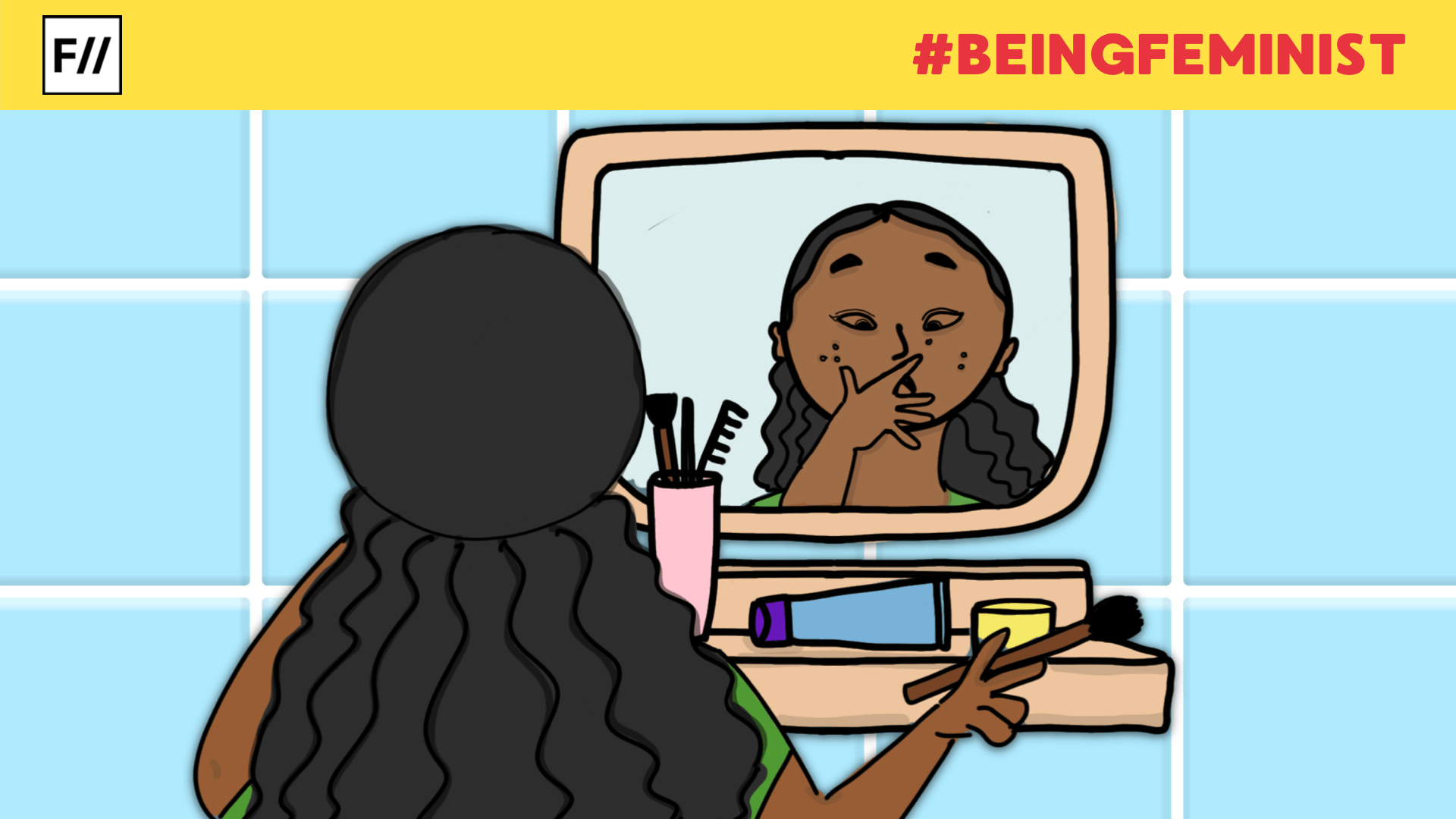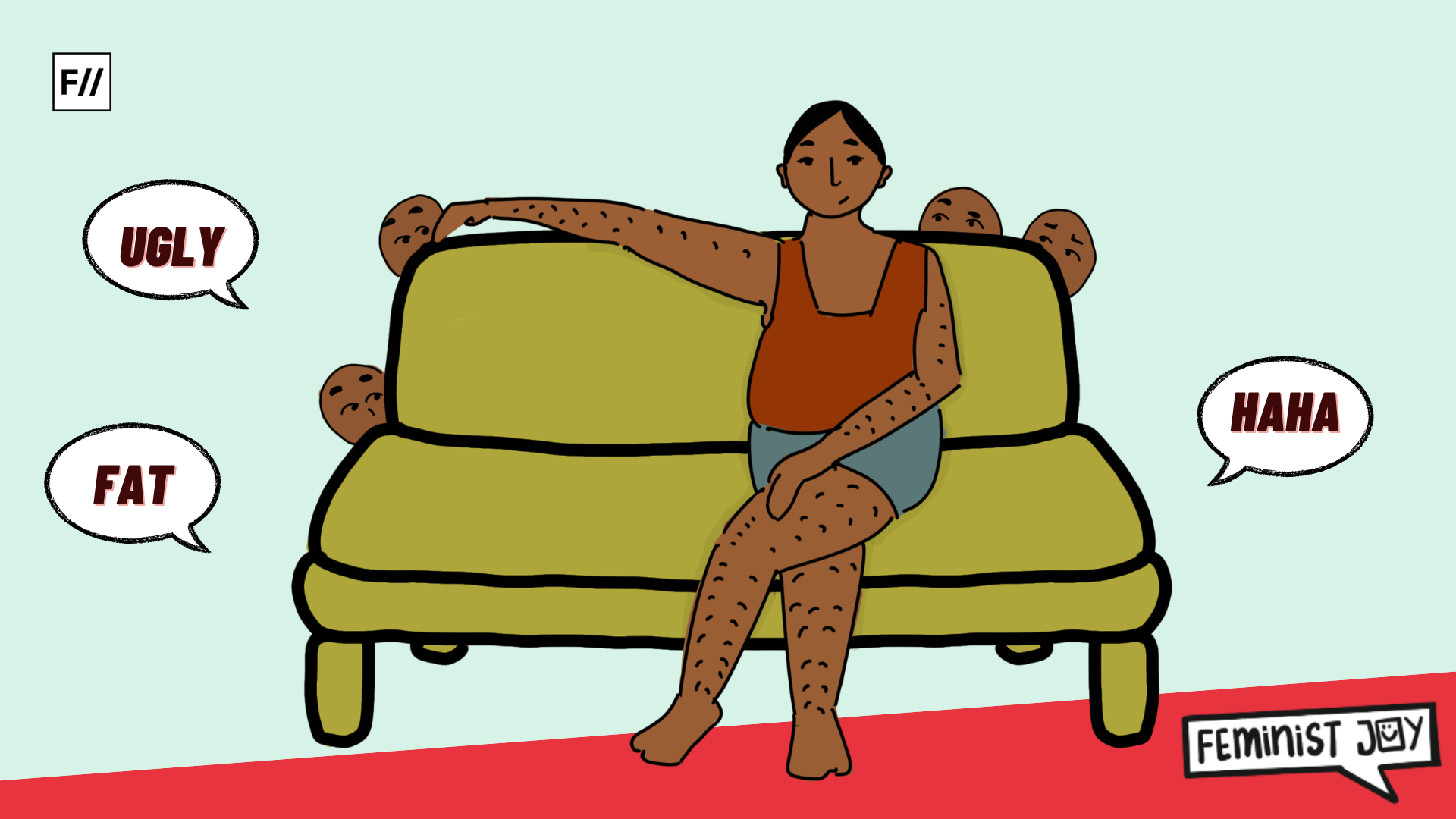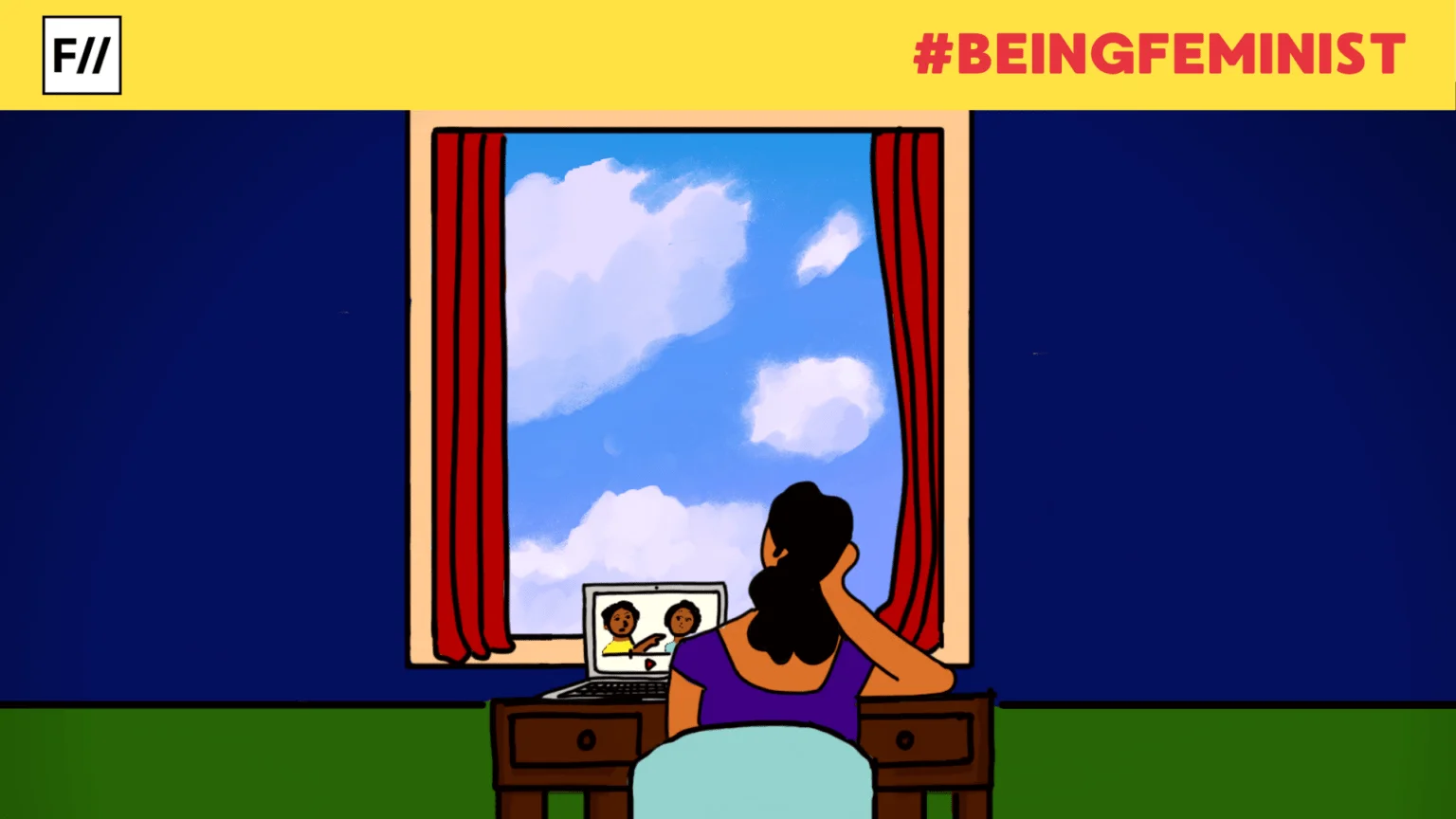Editorial Note: Being Feminist is a fortnightly column that features personal narratives documenting the emotions, vulnerabilities and innermost contradictions every feminist encounters while trying to push through various degrees of patriarchy in private, professional and public spaces.
I still remember that one morning when I sat on one of the high chairs in an expensive makeup studio. After going under the hands of multiple artists, I finally found a person who would be specifically putting on lipstick. It’s just lipstick, what’s the big deal? I thought. But in more than half an hour duration, the girl juggled with colours in a makeup palette she held, trying to find just the right shade that would go with my lehenga. When I finally looked in the mirror and saw the beautiful shade of lavender, I realised why an MUA (makeup artist) is truly an artist.
This was the beginning of me going through makeup products and watching makeup tutorials. It was a big leap for someone who avoided putting on even a moisturiser, to become someone who was looking at the differences between contour pencils and bronzers. A part of the reason for such reluctance was trying to save a hefty amount paid for every party makeover, while another part was about how makeup seemed doable to me.
I had always avoided drawing or sketching, thinking I was never good at making art. But makeup seemed like it could be an entry point that would teach me a form of art that is practically applicable in real life.

One day, when a friend told me that I really didn’t need to put on any makeup, it almost offended me. Even more so because it came from a person who didn’t even use sunscreen or knew the difference between makeup and skincare products. Makeup can mean different things to different people.
For some, it is to hide their blemishes, while for others, it is to create whole new looks. For some, it is simply to enhance their own features. In my case, I had simply picked it up because I wanted to experiment. It never rose out of a need or insecurities, but out of a genuine interest.
During that phase, I hated makeup. Not because I had any clue of how the whole idea of using makeup stemmed from a system that thrived on women’s physical insecurities, but because my skin condition was so bad that the thought of caking it more to hide it all seemed absurd to me. Meanwhile, my sisters put on foundation and powder on their smooth skin and asked me to follow suit. I sided with my parents by calling them out. Nobody in the family knew or had seen the makeup products that my sisters brought into the house. Everyone was skeptical about them. I just added more logs into the fire
Now it is easy for me to say that this was never related to a need for validation because I have been at that crossroad before. In my prime teenage years, my skin suffered from the worst acne breakout. I spent hours watching teleshop ads featuring Kendall Jenner and Justin Bieber promoting a certain face wash to fight off acne. I desperately wished someone would buy those products for me.
When the breakout started, my confidence really drooped. Every picture I posted online went through the elaborate process of filtration and editing. I detested going out and meeting new people because it meant showing them my unfiltered face. Going out always seemed like a confession and I didn’t want to be vulnerable. I canceled plans and stayed inside. Most of my friends belonged to the internet.
There were dermatologist visits, and standard routines of Caladil and Retiderm were prescribed. During their use, the acne subsided only to return again. I was sick of following the prescriptions while sneaking into bathrooms in between breaks at college.
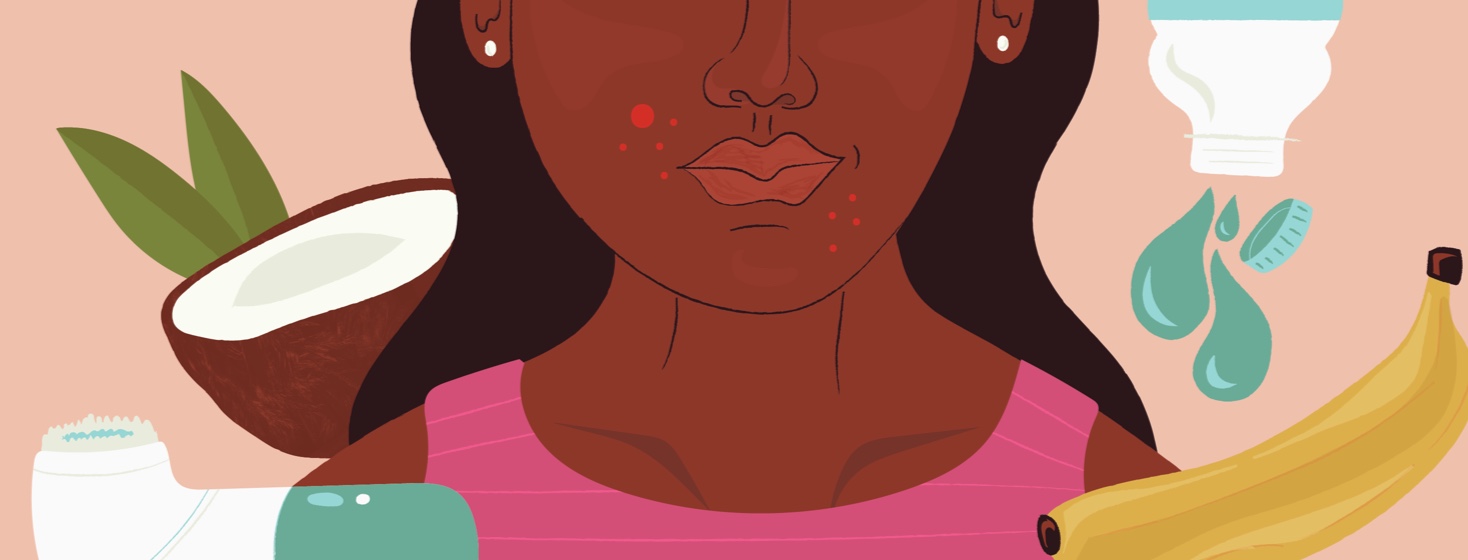
During that phase, I hated makeup. Not because I had any clue of how the whole idea of using makeup stemmed from a system that thrived on women’s physical insecurities, but because my skin condition was so bad that the thought of caking it more to hide it all seemed absurd to me.
Meanwhile, my sisters put on foundation and powder on their smooth skin and asked me to follow suit. I sided with my parents by calling them out. Nobody in the family knew or had seen the makeup products that my sisters brought into the house. Everyone was skeptical about them. I just added more logs into the fire.
I don’t remember how I ever got over my insecurities. Maybe it was the final realisation that this was how my skin was always going to be and I had to make peace with it. But surprisingly with this realisation, my skin also started clearing up. Suddenly, every day I was looking at a bare face which provided so much potential to be a canvas. So when I spent around four hours in that expensive makeup studio, I knew I had to exploit the possibilities that lay ahead of me.
Also read: ‘I Feel Like A Hypocrite When I Cringe At My Hairy Arms’: On Removing Body Hair While Being Feminist
Of course, rejecting skincare doesn’t automatically ward off all the consequences of living in a patriarchal world, because it is not really about skin care but the whole system. As Constance Grady writes in The Vox, “It’s about a system that is designed to make women feel terrible no matter what they do. And the best way we can help women through that system is to refrain from judging their choices as they do their best to get through it anyway.”
However, something did bother me. All of the women who came out after the makeover looked the same. The shades of foundation were different but the handful of makeup artists did the same routine with everyone. I looked different from myself, but also like everyone else.
This really prompted me to experiment with makeup. To use it to not hide but highlight my existing features. I realise this is not just me. Today, more than ever, individuals aren’t using makeup to attain impossible mainstream standards. They are drawn towards beauty which looks more like themselves than anyone else.
Similarly, the skincare routine that I follow is not a retaliation to who I already am, but an exploration. It is some precious time I give to myself. I make sure not to overdo it. Sometimes just a mild cleanser and a light moisturiser after a long day is all that I need before my sleep.
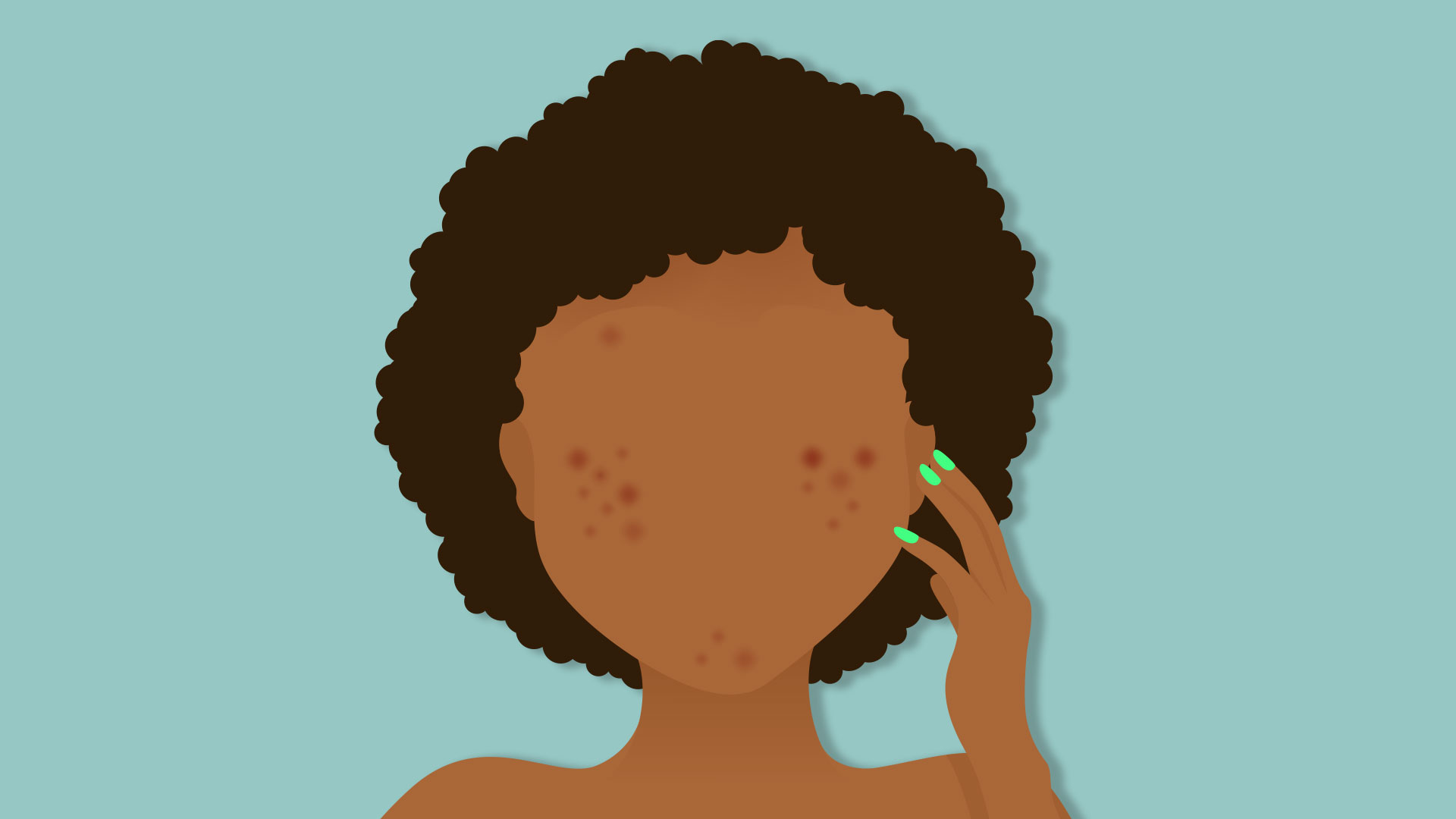
As I write this article, I am also skimming through opinions and discourse telling me that the whole idea of a skincare routine may be a facade. The skin is an organ which can supposedly take care of it by itself. There are a number of YouTube videos on following a skincare routine for a whole month and seeing no big changes.
In recent years, there has been much debate around skincare and beauty practices. The use of makeup is often said to make one foolish and conceited, while rejecting skincare may seem to make one gross, lazy or even unclean.
Of course, rejecting skincare doesn’t automatically ward off all the consequences of living in a patriarchal world, because it is not really about skin care but the whole system. As Constance Grady writes in The Vox, “It’s about a system that is designed to make women feel terrible no matter what they do. And the best way we can help women through that system is to refrain from judging their choices as they do their best to get through it anyway.”
Maybe it works, maybe it doesn’t. I know for a fact that my skincare routine doesn’t keep my acne at bay. My acne marks are still there, and yet, it still feels good to rub ice over my skin on one of those days, to put on fresh aloe vera, and to drink abundant bottles of water (even if it means repeatedly going to the washroom because you can look over a mirror that many times). None of this makes me vain. Loving oneself looks different for different people. You just need to find the version that works best for you.
Featured Illustration: Ritika Banerjee for Feminism In India
About the author(s)
Shuvangi is an independent writer and researcher based in Kathmandu, Nepal
